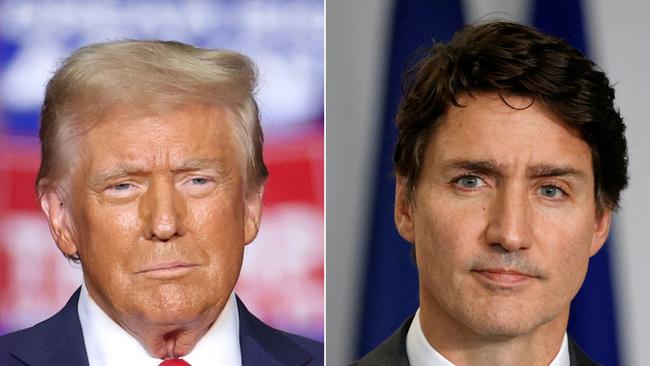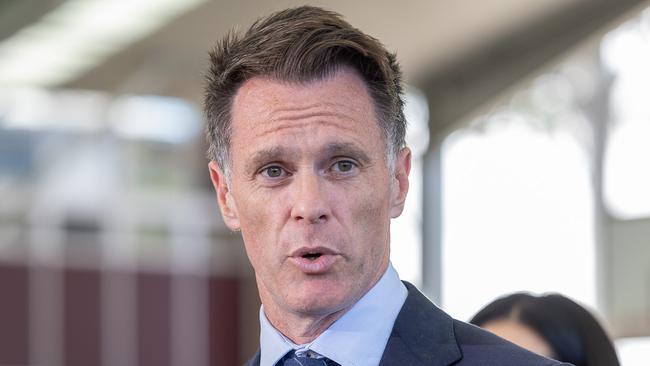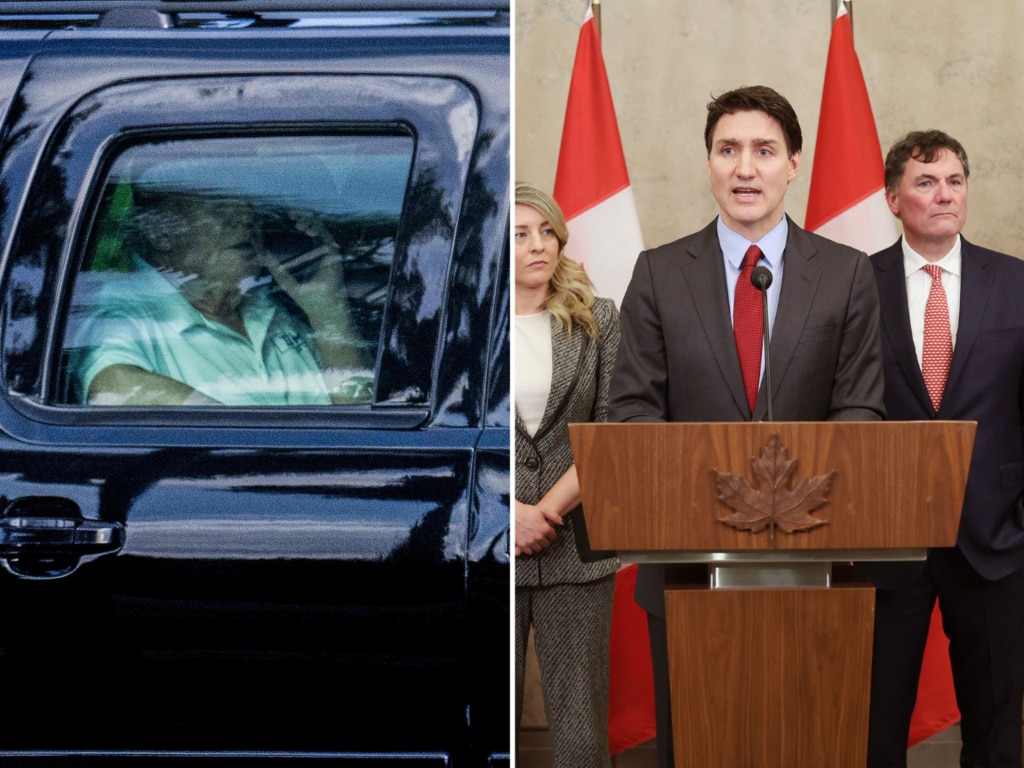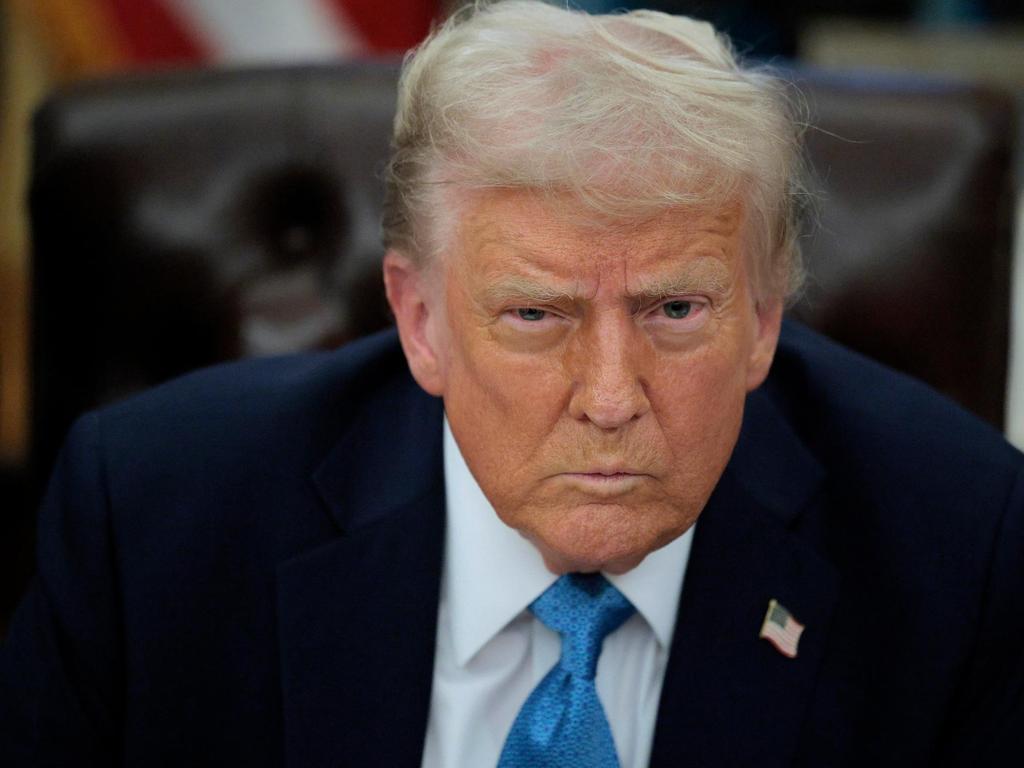We may be Donald Trump’s trade war collateral damage
The nation’s businesses and the Labor government have been warned that Donald Trump sees trade tariffs as an ‘end in themselves’ rather than a negotiating tool.

The nation’s businesses and the Labor government have been warned that Donald Trump sees trade tariffs as an “end in themselves” rather than a negotiating tool, as the US President’s economic warfare against China, Mexico and Canada wiped $50bn off the Australian stock exchange and crashed the dollar to a five-year low against the greenback.
Mr Trump’s introduction of 25 per cent tariffs on Mexico and Canada and a 10 per cent border tax on Chinese goods saw the dollar fall as much as 2.1 per cent to US60.88c on Monday.
While not directly in the firing line of tariffs at this point, the dollar has fallen about 12 per cent since September because China is Australia’s biggest trading partner. The dollar could revisit levels not seen since market turbulence at the start of the Covid pandemic in 2020.
On Australia’s stockmarket, the S&P/ASX 200 share index dived 2.1 per cent before closing down 1.8 per cent at 8379.4 points. It was the biggest one-day fall in Australia’s stockmarket in the past six months.
The collapse came as the Albanese government tries to hold back concerns that Australia’s struggling economy will become a victim in the trade war, with NSW Premier Chris Minns on Monday saying the unfolding trade war may cost local jobs because China will dump more cheap products into the Australian market.
Deputy Prime Minister and Defence Minister Richard Marles is planning to travel to Washington this week to meet with new Defence Secretary Pete Hegseth in a move to strengthen security ties with the new US administration.
While Mr Marles’s trip is not focused on trade, Labor’s support for the alliance and the AUKUS nuclear submarine pact are reasons the government has previously cited for why it could avoid direct tariffs on Australian products.
Former Australian ambassador to Washington Arthur Sinodinos said Mr Trump wanted to use tariffs to recapture the glory of the US from the 1950s and 60s when it was on top economically, militarily and socially.
He also cast doubt on whether the tariffs were a tool to extract concessions, telling The Australian that “I think they are an end in themselves”.
“We are very much into a new age of American protectionism which will further impact global institutions and we’ll see to what extent it will lead to trade retaliation,” Mr Sinodinos said.
The fallout from Mr Trump’s tariffs continued in North America, with a leading contender to become Canada’s next prime minister accusing the US President of committing an “act of economic warfare”.
Former finance minister Chrystia Freeland said the tariffs represented an attack against “America’s closest friend – of your ally, your neighbour, your best partner in the whole world”.
The condemnation came as Mr Trump posted extraordinary comments on his Truth Social platform making clear that Canada would not face any tariffs if it agreed to join the US as the 51st state.
“Canada should become our Cherished 51st State,” he said. “Much lower taxes, and far better military protection for the people of Canada — AND NO TARIFFS!”
In Australia, Mr Minns said this was “hugely important to the manufacturing sector in NSW. It’s hugely important to the Hunter, to the Illawarra and western Sydney. Jobs could be on the line if we get this wrong.”
“I want to speak specifically about potential for dumping Chinese products on the Australian domestic market … Australia can’t be behind the eight ball here,” the NSW Premier said.
“Ordinarily speaking, there’s a dumping commissioner that launches a six to nine-month inquiry into what happens to the Australian economy.
“We can’t wait six to nine months when you’ve got Canada, Mexico, China, America almost acting instantly. We need to make sure that we are ready and prepared for these changes.”
Foreign Minister Penny Wong suggested Australia was well positioned to avoid being directly hit, arguing that the US had a “trade surplus with us, a two-to-one surplus in America’s favour.”

“All goods from the US enter Australia free of tariffs or any impediments, as a consequence of the free-trade agreement,” Senator Wong said.
“What I would say is, obviously, this will affect global markets. That’s self-evident. It is also obvious that this is consistent with what President Trump said he would do.”
Malcolm Turnbull, who managed to fend off steel and aluminium tariffs during Mr Trump’s first term, said the Albanese government would need to stand up to the President to help shield Australia from potential tariffs.
“Bottom line is the Australian PM will have to demonstrate to Trump, as I did, that imposing a tariff would hurt America,” the former Liberal prime minister said. “This requires strong persuasive advocacy. Sucking up and flattery is not going to cut it, nor will reminders of our alliance and past wars.”







To join the conversation, please log in. Don't have an account? Register
Join the conversation, you are commenting as Logout